Patricia Pelufo Silveira
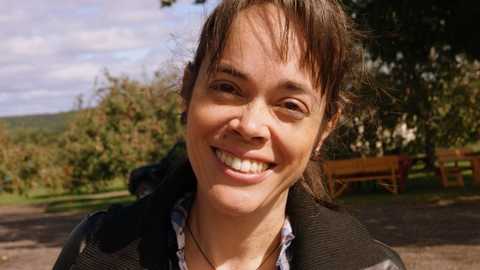 Dr Silveira obtained an MD (2001) and specialized in Paediatrics (2002-2006). She received a MSc (2004) and a PhD (2007) in Neurosciences from the Universidade Federal do Rio Grande do Sul (UFRGS), Brazil. She also completed a CIHR funded postdoctoral fellowship (2007–2009) at McGill, and specialized in Neonatal Follow Up (Montreal Children’s Hospital, 2007). Before returning to McGill in 2016, Dr Silveira was an Assistant Professor in the UFRGS Paediatrics Department (2009-2016) and led an externally funded lab, the DOHaD Porto Alegre group. Dr Silveira’s research combines the Developmental Origins of Health & Disease (DOHaD) theory with the Life Course Theory (LCT); both are emerging fields of research that have significant implications for public health and illness prevention. Her research focuses on how perinatal and early-childhood environments can shape and modulate both health and disease across the lifespan, into old age. Her aim is to identify genetic/epigenetic markers that interact with environmental adversities in childhood, modifying behaviours (impulsivity, sensitivity to reward, food choices) that ultimately affect healthy growth and neurodevelopment and increasing an individual’s risk for developing chronic diseases and mental illnesses as they age.
Dr Silveira obtained an MD (2001) and specialized in Paediatrics (2002-2006). She received a MSc (2004) and a PhD (2007) in Neurosciences from the Universidade Federal do Rio Grande do Sul (UFRGS), Brazil. She also completed a CIHR funded postdoctoral fellowship (2007–2009) at McGill, and specialized in Neonatal Follow Up (Montreal Children’s Hospital, 2007). Before returning to McGill in 2016, Dr Silveira was an Assistant Professor in the UFRGS Paediatrics Department (2009-2016) and led an externally funded lab, the DOHaD Porto Alegre group. Dr Silveira’s research combines the Developmental Origins of Health & Disease (DOHaD) theory with the Life Course Theory (LCT); both are emerging fields of research that have significant implications for public health and illness prevention. Her research focuses on how perinatal and early-childhood environments can shape and modulate both health and disease across the lifespan, into old age. Her aim is to identify genetic/epigenetic markers that interact with environmental adversities in childhood, modifying behaviours (impulsivity, sensitivity to reward, food choices) that ultimately affect healthy growth and neurodevelopment and increasing an individual’s risk for developing chronic diseases and mental illnesses as they age.
Email: patricia.silveira@mcgill.ca
Kieran O’Donnell
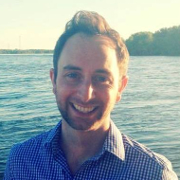 Kieran obtained his B.Sc. in Psychology (University of Westminster, London), M.Sc. in Neuroscience (Institute of Psychiatry, Kings College London) and Ph.D. in Clinical Medicine (Imperial College London) in Great Britain. He is currently a CIFAR (Child and Brain Development)/NeuroDevNet postdoctoral fellow in the Meaney lab. During his Ph.D. (with Vivette Glover at Imperial College London) he studied the long-term effects of maternal prenatal anxiety/depression on child development and characterised potential mediating mechanisms in the human placenta. Kieran’s post-doctoral work examines how various early life factors influence the function of the genome in the developing child. This research takes place in the context of a number of prospective, longitudinal cohort studies where he characterizes patterns of DNA methylation across the genome using array-based platforms. The analyses exploit local expertise in Bioinformatics, together with groups in Canada and Singapore. These collaborative studies examine how early adversity becomes biologically embedded, and the implications of such effects for child mental health. In parallel, his project seeks to identify epigenetic signatures of positive early life experiences, such as early interventions, that buffer some of the effects of early life stress.
Kieran obtained his B.Sc. in Psychology (University of Westminster, London), M.Sc. in Neuroscience (Institute of Psychiatry, Kings College London) and Ph.D. in Clinical Medicine (Imperial College London) in Great Britain. He is currently a CIFAR (Child and Brain Development)/NeuroDevNet postdoctoral fellow in the Meaney lab. During his Ph.D. (with Vivette Glover at Imperial College London) he studied the long-term effects of maternal prenatal anxiety/depression on child development and characterised potential mediating mechanisms in the human placenta. Kieran’s post-doctoral work examines how various early life factors influence the function of the genome in the developing child. This research takes place in the context of a number of prospective, longitudinal cohort studies where he characterizes patterns of DNA methylation across the genome using array-based platforms. The analyses exploit local expertise in Bioinformatics, together with groups in Canada and Singapore. These collaborative studies examine how early adversity becomes biologically embedded, and the implications of such effects for child mental health. In parallel, his project seeks to identify epigenetic signatures of positive early life experiences, such as early interventions, that buffer some of the effects of early life stress.
Email: kieran.odonnell@mail.mcgill.ca
Tie Yuan Zhang
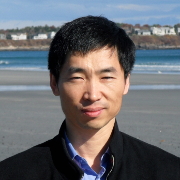 Tie Yuan obtained his PhD in the Dept. of Pharmacology at Yonsei University in Seoul, Rep. of Korea in 2001. He uses a multidisciplinary approach to study how social experience in early life can influence the development of neural systems that mediate potential vulnerability for psychopathology through epigenetic modifications. This includes examining DNA methylation, DNA hydroxymethylation as well as chromatin structure by using quantitative real time PCR, bisulfite mapping, Chromatin Immunoprecipitation, Medip-chip, RNA-sequencing, bisulfite-sequencing, TAB-sequencing, ChIP-sequencing, and optogenetics.
Tie Yuan obtained his PhD in the Dept. of Pharmacology at Yonsei University in Seoul, Rep. of Korea in 2001. He uses a multidisciplinary approach to study how social experience in early life can influence the development of neural systems that mediate potential vulnerability for psychopathology through epigenetic modifications. This includes examining DNA methylation, DNA hydroxymethylation as well as chromatin structure by using quantitative real time PCR, bisulfite mapping, Chromatin Immunoprecipitation, Medip-chip, RNA-sequencing, bisulfite-sequencing, TAB-sequencing, ChIP-sequencing, and optogenetics.
Students
Marcio Bonesso Alves
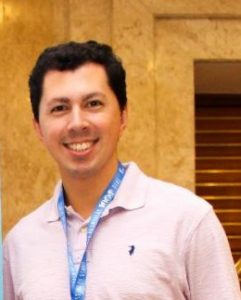 Marcio obtained his B.Sc in Biology, M.Sc in Neurosciences and Ph.D. in Biochemistry at the Universidade Federal do Rio Grande do Sul – UFRGS, Brazil. His research consisted of evaluating the long-term impact of prenatal adversities on executive functions and its underlying neural mechanisms, with emphasis on dopaminergic signalling within prefrontal regions. He is currently a postdoctoral fellow at the Meaney/ Silveira Labs and his research aims to investigate the interaction between early environment and presynaptic plasticity genes on the risk for behavioral impairments throughout life. His work involves a translational approach in which rodent models, human data, and bioinformatic tools are integrated in order to highlight the importance of early life conditions and to identify neurochemical targets for new studies and treatments.
Marcio obtained his B.Sc in Biology, M.Sc in Neurosciences and Ph.D. in Biochemistry at the Universidade Federal do Rio Grande do Sul – UFRGS, Brazil. His research consisted of evaluating the long-term impact of prenatal adversities on executive functions and its underlying neural mechanisms, with emphasis on dopaminergic signalling within prefrontal regions. He is currently a postdoctoral fellow at the Meaney/ Silveira Labs and his research aims to investigate the interaction between early environment and presynaptic plasticity genes on the risk for behavioral impairments throughout life. His work involves a translational approach in which rodent models, human data, and bioinformatic tools are integrated in order to highlight the importance of early life conditions and to identify neurochemical targets for new studies and treatments.
Email: marcio.b-alves.comtl@ssss.gouv.qc.ca
Danusa Mar Arcego
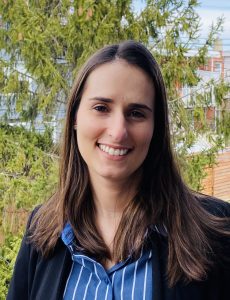 Danusa obtained her B.Sc in Pharmacy and M.Sc and Ph.D. in Biochemistry at the Universidade Federal do Rio Grande do Sul – UFRGS, Brazil. Her main research interest is to understand the neurobiological basis of stress exposure on the development of mental illness. She is currently a postdoctoral fellow at the Meaney lab. Danusa’s post-doctoral work examines the effects of glucocorticoid exposure on transcriptional and neural signatures associated with the development of emotional disorders. Her work integrates basic science studies in animal models and translational bioinformatics approaches to explore the mechanisms underlying stress responses associated with neuropsychiatric disorders.
Danusa obtained her B.Sc in Pharmacy and M.Sc and Ph.D. in Biochemistry at the Universidade Federal do Rio Grande do Sul – UFRGS, Brazil. Her main research interest is to understand the neurobiological basis of stress exposure on the development of mental illness. She is currently a postdoctoral fellow at the Meaney lab. Danusa’s post-doctoral work examines the effects of glucocorticoid exposure on transcriptional and neural signatures associated with the development of emotional disorders. Her work integrates basic science studies in animal models and translational bioinformatics approaches to explore the mechanisms underlying stress responses associated with neuropsychiatric disorders.
Email: danusa.mararcego@douglas.mcgill.ca
Barbara Barth
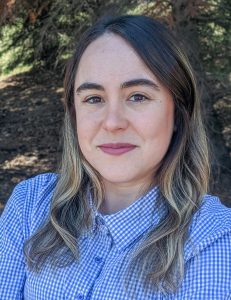 Barbara completed her B.Sc in Psychology at Universidade Federal de Ciências da Saúde de Porto Alegre (UFCSPA-Brazil) during which she was awarded with a full scholarship to complete a one year exchange period at York University (Canada). She obtained her M.Sc. in experimental psychology at Universidade Federal do Rio Grande do Sul (UFRGS-Brazil) and during this period she completed a two-year clinical training in cognitive behavioral therapy. As a master’s student she was awarded by the Emerging Leaders in the Americas Program (ELAP – Canada Global Affairs) a full scholarship for a research trainee experience at the Douglas Mental Health University Institute (Canada). Currently she is pursuing a PhD in Neuroscience from the Integrated Program in Neuroscience at McGill University under the supervision of Dr. Patricia Pelufo Silveira. Barbara is interested in the interplay between dopamine and early environment conditions as the biological basis for early origins of psychiatric and cardiometabolic comorbidities. With her PhD in neuroscience she aims to address complex questions from the developmental psychology field.
Barbara completed her B.Sc in Psychology at Universidade Federal de Ciências da Saúde de Porto Alegre (UFCSPA-Brazil) during which she was awarded with a full scholarship to complete a one year exchange period at York University (Canada). She obtained her M.Sc. in experimental psychology at Universidade Federal do Rio Grande do Sul (UFRGS-Brazil) and during this period she completed a two-year clinical training in cognitive behavioral therapy. As a master’s student she was awarded by the Emerging Leaders in the Americas Program (ELAP – Canada Global Affairs) a full scholarship for a research trainee experience at the Douglas Mental Health University Institute (Canada). Currently she is pursuing a PhD in Neuroscience from the Integrated Program in Neuroscience at McGill University under the supervision of Dr. Patricia Pelufo Silveira. Barbara is interested in the interplay between dopamine and early environment conditions as the biological basis for early origins of psychiatric and cardiometabolic comorbidities. With her PhD in neuroscience she aims to address complex questions from the developmental psychology field.
Email: barbara.barth@mail.mcgill.ca
Aashita Batra
 Aashita earned her Bachelor of Science in Biochemistry with a minor in Mathematics and her Master of Education with concentrations in Mathematics and Science from Temple University (Philadelphia, PA). During her B.Sc., Aashita’s research, guided by Dr. Karen Palter, focused on identifying the molecular basis of insulin resistance development in neuroendocrine cells by using sialic acid mutant Drosophila as a model system. Following which, Aashita conducted research at Drexel University’s School of Medicine with Dr. Rodrigo España where her work focused on dopamine release and uptake dynamics in response to multiple pharmacological treatments using in-vitro fast-scan cyclic voltammetry in rat brain slices. She is now pursuing a PhD in Neuroscience from the Integrated Program in Neuroscience at McGill University under the supervision of Dr. Patricia Pelufo Silveira. Her current research explores the modulation of the dopaminergic mesocorticolimbic pathway by insulin in models of fetal adversity. This work integrates rodent models with translational bioinformatics approaches to explore the mechanisms underlying multiple executive functions.
Aashita earned her Bachelor of Science in Biochemistry with a minor in Mathematics and her Master of Education with concentrations in Mathematics and Science from Temple University (Philadelphia, PA). During her B.Sc., Aashita’s research, guided by Dr. Karen Palter, focused on identifying the molecular basis of insulin resistance development in neuroendocrine cells by using sialic acid mutant Drosophila as a model system. Following which, Aashita conducted research at Drexel University’s School of Medicine with Dr. Rodrigo España where her work focused on dopamine release and uptake dynamics in response to multiple pharmacological treatments using in-vitro fast-scan cyclic voltammetry in rat brain slices. She is now pursuing a PhD in Neuroscience from the Integrated Program in Neuroscience at McGill University under the supervision of Dr. Patricia Pelufo Silveira. Her current research explores the modulation of the dopaminergic mesocorticolimbic pathway by insulin in models of fetal adversity. This work integrates rodent models with translational bioinformatics approaches to explore the mechanisms underlying multiple executive functions.
Email: aashita.batra@mail.mcgill.ca
Leora Hiar
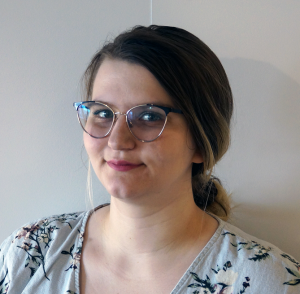 Leora obtained her B.Sc. in Neuroscience from the University of Lethbridge before coming to McGill. Currently, she is pursuing her M.Sc. in Neuroscience under the supervision of Dr. Tie Yuan Zhang. Her project involves investigating the role of neurogenesis and environmental enrichment in modulating stress response in female mice. Leora Hiar hopes that female-focused stress research will help improve mental health outcomes for women around the world.
Leora obtained her B.Sc. in Neuroscience from the University of Lethbridge before coming to McGill. Currently, she is pursuing her M.Sc. in Neuroscience under the supervision of Dr. Tie Yuan Zhang. Her project involves investigating the role of neurogenesis and environmental enrichment in modulating stress response in female mice. Leora Hiar hopes that female-focused stress research will help improve mental health outcomes for women around the world.
Email: leora.hiar@mail.mcgill.ca
Maeson Latsko
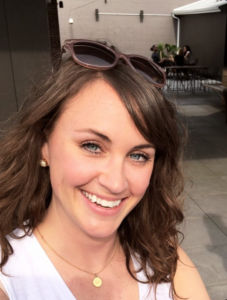 Maeson received her B.Sc. in Biotechnology and Ph.D. in Behavioral Neuroscience from Kent State University (Kent, Ohio). Her graduate studies in Dr. Aaron Jasnow’s lab focused on elucidating the immediate and long-term role of adolescent stress on neural, behavioral, and endocrine functioning. Maeson currently holds a Healthy Brains for Healthy Lives Postdoctoral Fellowship in the Meaney and Silveira Labs. Her postdoctoral research questions involve interdisciplinary, multispecies models of child and adolescent mental health. This work includes a translational model of differential susceptibility to empirically test whether malleable individuals share common transcriptional patterns of gene expression that result in heightened responsivity to the environment. This model utilizes computational methods in humans and cutting-edge technology in rodents to understand how genetic predisposition to attend to environmental stimuli moderates the risk for developing psychopathologies during development.
Maeson received her B.Sc. in Biotechnology and Ph.D. in Behavioral Neuroscience from Kent State University (Kent, Ohio). Her graduate studies in Dr. Aaron Jasnow’s lab focused on elucidating the immediate and long-term role of adolescent stress on neural, behavioral, and endocrine functioning. Maeson currently holds a Healthy Brains for Healthy Lives Postdoctoral Fellowship in the Meaney and Silveira Labs. Her postdoctoral research questions involve interdisciplinary, multispecies models of child and adolescent mental health. This work includes a translational model of differential susceptibility to empirically test whether malleable individuals share common transcriptional patterns of gene expression that result in heightened responsivity to the environment. This model utilizes computational methods in humans and cutting-edge technology in rodents to understand how genetic predisposition to attend to environmental stimuli moderates the risk for developing psychopathologies during development.
Email: maeson.latsko@mail.mcgill.ca
Li Li

Li Li completed her B.Sc in biochemistry at McGill University and worked as a research assistant in the Goodman Cancer Research Centre from 2016 to 2017. She is currently an M.Sc student supervised by Dr. Meaney. Her research interests are to investigate the associations between single nucleotide polymorphisms and phenotypes of mood disorders by integrating genotypic and transcriptomic data from rodent models. She is also interested in implementing translational bioinformatics approaches to study human behaviours using gene networks derived from the rat transcriptome.
Email: li.li14@mail.mcgill.ca
Euclides José de Mendonça Filho
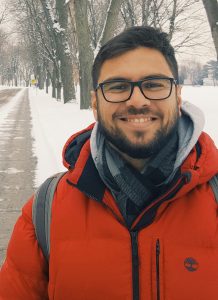 Euclides obtained his B.Sc. in Psychology (Universidade Federal da Bahia, Salvador-Brazil), M.Sc. and a Ph.D in Psychology (Universidade Federal do Rio Grande do Sul, Porto Alegre-Brazil). During his graduate studies, Euclides and colleagues co-engaged in a joint University of Nebraska Lincoln/Brazil Collaboration Pilot Impact Grant with the aim of designing a low-cost instrument – the Dimensional Inventory for Child Development Assessment (IDADI) – to assess the neurodevelopmental pathways of Brazilian children. Currently he is a postdoctoral fellow at the Meaney/ Silveira Labs where he aims to use psychometric and machine learning modelling of different data modalities (e.g. genetic, behavioral and neuroimaging) for early identification of developmental disorders.
Euclides obtained his B.Sc. in Psychology (Universidade Federal da Bahia, Salvador-Brazil), M.Sc. and a Ph.D in Psychology (Universidade Federal do Rio Grande do Sul, Porto Alegre-Brazil). During his graduate studies, Euclides and colleagues co-engaged in a joint University of Nebraska Lincoln/Brazil Collaboration Pilot Impact Grant with the aim of designing a low-cost instrument – the Dimensional Inventory for Child Development Assessment (IDADI) – to assess the neurodevelopmental pathways of Brazilian children. Currently he is a postdoctoral fellow at the Meaney/ Silveira Labs where he aims to use psychometric and machine learning modelling of different data modalities (e.g. genetic, behavioral and neuroimaging) for early identification of developmental disorders.
Staff
Anne-Marie Arel-Dubeau
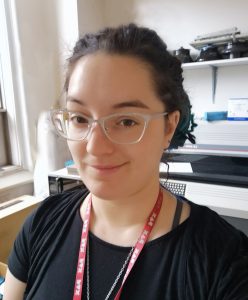 Anne-Marie completed her graduate studies at Université du Québec à Trois-Rivières, obtaining an M. Sc. in Cellular and Molecular Biology, Neurosciences profile. Her research consisted of assessing the neuroprotective properties of a natural phytoestrogen on a cellular model of Parkinson’s disease. After graduating, Anne-Marie worked in the pharmaceutical industry as a Quality Control Analyst in Microbiology. She has been part of the Meaney lab for 3 years now as a Research Assistant. Her current role focuses on the processing of human tissue samples, which has put her skills in nucleic acid isolation and ELISA assay to good use. Anne-Marie is always eager for opportunities to learn new techniques, such as multiplex systems and automated instruments, and has excelled whenever afforded any.
Anne-Marie completed her graduate studies at Université du Québec à Trois-Rivières, obtaining an M. Sc. in Cellular and Molecular Biology, Neurosciences profile. Her research consisted of assessing the neuroprotective properties of a natural phytoestrogen on a cellular model of Parkinson’s disease. After graduating, Anne-Marie worked in the pharmaceutical industry as a Quality Control Analyst in Microbiology. She has been part of the Meaney lab for 3 years now as a Research Assistant. Her current role focuses on the processing of human tissue samples, which has put her skills in nucleic acid isolation and ELISA assay to good use. Anne-Marie is always eager for opportunities to learn new techniques, such as multiplex systems and automated instruments, and has excelled whenever afforded any.
Email: anne-marie.arel-dubeau@douglas.mcgill.ca
Julia Barnwell
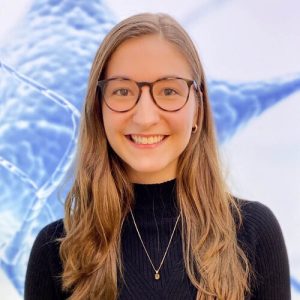
From her grandmothers to her mother who raised their families while building successful careers in healthcare, Julia grew up surrounded by strong female role models who showed her first-hand the values of hard work, determination and humility. In the hopes of one day following in their footsteps, Julia recently graduated from McGill University with a BSc in Biology and with a second major in International Development. During her undergrad, she spent a semester studying abroad at the University of North Carolina at Chapel Hill, which consolidated her interest in how genetic and social factors combine and interact differently to shape individuals. She is currently pursuing her interests as a research assistant for the Montreal Antenatal Well-Being Study.
Andrew Clappison
 Andrew received his Bachelor of Mathematics from the University of Waterloo, with minors in Cognitive Science and Computational Mathematics. He is passionate about using data analysis to improve medical decision making and achieve personalized medicine. As a Junior Data Scientist in the Meaney lab, he works with genotype, methylation, and phenotype information. His work ranges from the initial quality control and processing of data, to the calculating of biological scores and the creation of data visualizations. Andrews is also readily available to assist anyone in the lab with the various computational components of their research.
Andrew received his Bachelor of Mathematics from the University of Waterloo, with minors in Cognitive Science and Computational Mathematics. He is passionate about using data analysis to improve medical decision making and achieve personalized medicine. As a Junior Data Scientist in the Meaney lab, he works with genotype, methylation, and phenotype information. His work ranges from the initial quality control and processing of data, to the calculating of biological scores and the creation of data visualizations. Andrews is also readily available to assist anyone in the lab with the various computational components of their research.
Email: andrew.clappison.comtl@ssss.gouv.qc.ca
Kelsey Davis
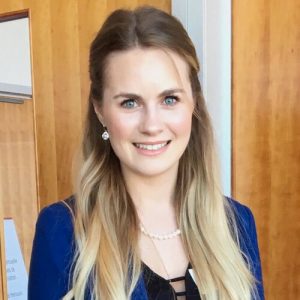
Kelsey’s passion for healthcare began from a young age. Having grown up with a chronically ill sister, she was frequently exposed to the health care system early on. Her interests lie in improving treatment and resources available to those affected by illness, especially women. Kelsey recently graduated with her Honours BSc. in Psychology from the University of Ottawa and has spent the last year of her studies researching female adolescent mental health at the Children’s Hospital of Eastern Ontario in the department of Psychiatry. Kelsey is currently a research assistant for the Montreal Antenatal Well-Being Study and she hopes to continue her academic career making valuable advancements to the mental health field.
Derek Lupinsky
 Derek obtained his B.Sc.H in Biology and Psychology and M.Sc. in Physiology at Queen’s University (Kingston, ON). He moved to Montreal to complete a Ph.D. in Neuroscience at McGill University studying the hemispheric specialization of prefrontal cortical mechanisms that regulate the stress response in rats. He is currently a Project Coordinator of preclinical magnetic resonance imaging in Dr. Meaney’s lab. Here, he works with teams at the Douglas Brain Imaging Centre and McGill University Research Centre for Studies in Aging to develop imaging modalities and associated analyses best suited to our rodent models of maternal care, enrichment, and stress-induced psychopathology.
Derek obtained his B.Sc.H in Biology and Psychology and M.Sc. in Physiology at Queen’s University (Kingston, ON). He moved to Montreal to complete a Ph.D. in Neuroscience at McGill University studying the hemispheric specialization of prefrontal cortical mechanisms that regulate the stress response in rats. He is currently a Project Coordinator of preclinical magnetic resonance imaging in Dr. Meaney’s lab. Here, he works with teams at the Douglas Brain Imaging Centre and McGill University Research Centre for Studies in Aging to develop imaging modalities and associated analyses best suited to our rodent models of maternal care, enrichment, and stress-induced psychopathology.
Email: derek.lupinsky@mail.mcgill.ca
Nicholas O’Toole
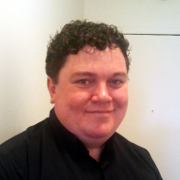 After receiving a Bsc and Ph.D. in Physics from The University of Western Australia, Nick conducted a variety of bioinfomatics and systems biology research projects at UWA, McGill and Concordia Universities, on topics as diverse as structural genomics, genome evolution, protein interaction networks, next-generation sequencing analysis and metatranscriptomics. He joined the Ludmer Centre to integrate the wealth of genomic and epigenetic data being generated by its projects. This effort includes the analysis of RNA-Seq, ChIP-Seq, small RNA-seq and whole-genome bisulfite sequencing. In collaboration with researchers across institutions, these data will be interpreted in a unified way to address biologically and clinically relevant questions.
After receiving a Bsc and Ph.D. in Physics from The University of Western Australia, Nick conducted a variety of bioinfomatics and systems biology research projects at UWA, McGill and Concordia Universities, on topics as diverse as structural genomics, genome evolution, protein interaction networks, next-generation sequencing analysis and metatranscriptomics. He joined the Ludmer Centre to integrate the wealth of genomic and epigenetic data being generated by its projects. This effort includes the analysis of RNA-Seq, ChIP-Seq, small RNA-seq and whole-genome bisulfite sequencing. In collaboration with researchers across institutions, these data will be interpreted in a unified way to address biologically and clinically relevant questions.
Email: nicholas.otoole@douglas.mcgill.ca
Carine Parent
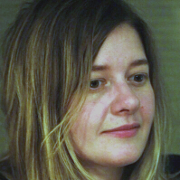 Carine completed her B.Sc. degree in Biology and Psychology at McGill University before completing her Ph.D. in the Meaney lab at the Douglas Mental Health University Institute where she currently continued as a Research Associate. During her Ph.D., Carine studied how maternal care by rat dams during the first week of life influences the neuroimmune response of the offspring to a bacterial mimetic challenge in adulthood. She found that maternal care behavior can program the febrile response of the offspring and that such effects persist into in adulthood. This ‘programming’ effect is due to individual differences in pro-inflammatory cytokine production and glucocorticoid sensitivity. Carine’s current studies focus on the influence of infections in early life on socio-emotional development in humans using longitudinal cohort studies based in Canada and in Asia.
Carine completed her B.Sc. degree in Biology and Psychology at McGill University before completing her Ph.D. in the Meaney lab at the Douglas Mental Health University Institute where she currently continued as a Research Associate. During her Ph.D., Carine studied how maternal care by rat dams during the first week of life influences the neuroimmune response of the offspring to a bacterial mimetic challenge in adulthood. She found that maternal care behavior can program the febrile response of the offspring and that such effects persist into in adulthood. This ‘programming’ effect is due to individual differences in pro-inflammatory cytokine production and glucocorticoid sensitivity. Carine’s current studies focus on the influence of infections in early life on socio-emotional development in humans using longitudinal cohort studies based in Canada and in Asia.
Email: carineiparent@gmail.com
Irina Pokhvisneva
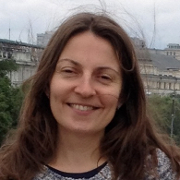 Irina is a biostatistician at the Ludmer Centre for Neuroinformatics and Mental Health. Her academic background lies in the fields of biostatistics and applied mathematics. Her current focus is on statistical analysis of longitudinal and cross-sectional data, and also on consulting and collaborating with researchers on the various aspects of the data analysis. Irina works on different topics related to child development and how it is associated with environmental conditions.
Irina is a biostatistician at the Ludmer Centre for Neuroinformatics and Mental Health. Her academic background lies in the fields of biostatistics and applied mathematics. Her current focus is on statistical analysis of longitudinal and cross-sectional data, and also on consulting and collaborating with researchers on the various aspects of the data analysis. Irina works on different topics related to child development and how it is associated with environmental conditions.
Email: irina.pokhvisneva@douglas.mcgill.ca
Cindy Hénault Robert
 Cindy received her MSc in Migration, Mobility and Development from the School of Oriental and African Studies (University of London) and her BA in International Development from the University of Calgary. Cindy is passionate about working towards the improvement of the health and well-being of women and girls. After 10 years focused internationally, most recently managing a project helping midwives to reduce maternal and newborn mortality in sub-Saharan Africa, she shifted her attention closer to home. Cindy is the Study Coordinator for the Montreal Antenatal Well-Being Study. In this role, Cindy is able to combine her expertise in project management with her passion for women’s mental health.
Cindy received her MSc in Migration, Mobility and Development from the School of Oriental and African Studies (University of London) and her BA in International Development from the University of Calgary. Cindy is passionate about working towards the improvement of the health and well-being of women and girls. After 10 years focused internationally, most recently managing a project helping midwives to reduce maternal and newborn mortality in sub-Saharan Africa, she shifted her attention closer to home. Cindy is the Study Coordinator for the Montreal Antenatal Well-Being Study. In this role, Cindy is able to combine her expertise in project management with her passion for women’s mental health.
Email: cindy.henaultrobert.comtl@ssss.gouv.qc.ca
Richard Ryan
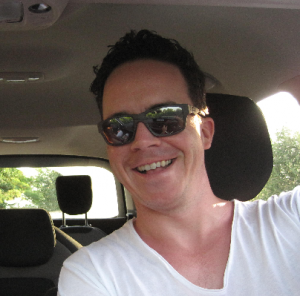 Richard completed his B.Sc in psychology, specializing in behavioural neurobiology, at Concordia’s CSBN. He obtained his M.Sc. in neuroscience at McGill performing morphological, electrophysiological, and molecular analyses of the prefrontal cortex in a putative animal model of schizophrenia. He is currently lab manager and a research coordinator in Dr. Meaney’s lab. His interests lie in the neurobiological correlates underlying natural variation in maternal care, how this variation influences offspring neural development, and how the resulting phenotypic outcomes can be adaptive under different environmental pressures.
Richard completed his B.Sc in psychology, specializing in behavioural neurobiology, at Concordia’s CSBN. He obtained his M.Sc. in neuroscience at McGill performing morphological, electrophysiological, and molecular analyses of the prefrontal cortex in a putative animal model of schizophrenia. He is currently lab manager and a research coordinator in Dr. Meaney’s lab. His interests lie in the neurobiological correlates underlying natural variation in maternal care, how this variation influences offspring neural development, and how the resulting phenotypic outcomes can be adaptive under different environmental pressures.
Email: richard.ryan@douglas.mcgill.ca
Camila Valle
 Camila obtained her B.Sc in microbiology at Pontificia Universidad Javeriana, Colombia. Recently she completed her M.Sc in veterinary science at Université de Montréal, specifically working in virology. Over the years she has worked on cell culture, antibody based assays, molecular biology and proteomics. Her role on the Meaney lab is processing and preparing samples, as well as trouble shooting and molecular biology applications.
Camila obtained her B.Sc in microbiology at Pontificia Universidad Javeriana, Colombia. Recently she completed her M.Sc in veterinary science at Université de Montréal, specifically working in virology. Over the years she has worked on cell culture, antibody based assays, molecular biology and proteomics. Her role on the Meaney lab is processing and preparing samples, as well as trouble shooting and molecular biology applications.
Email: camila-andrea.tejada.comtl@ssss.gouv.qc.ca
Xianglan Wen
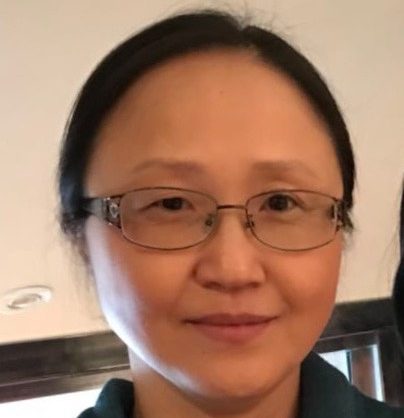 Xianglan received her doctorate of dentistry in 1991 and doctorate of medicine (M.D.) at Yanbian University Medical College, China, in 1996. She worked at the department of electromicroscopy at Yanbian University Medical College in China for six years after graduation. Xianglan joined Dr. Michael Meaney’s laboratory as a research assistant in 2004. She is a skilled wetlab technician excelling in molecular biology work including primary cell culture, quantitative real time PCR, chromatin immunoprecipitation, and library preparation for next generation sequencing.
Xianglan received her doctorate of dentistry in 1991 and doctorate of medicine (M.D.) at Yanbian University Medical College, China, in 1996. She worked at the department of electromicroscopy at Yanbian University Medical College in China for six years after graduation. Xianglan joined Dr. Michael Meaney’s laboratory as a research assistant in 2004. She is a skilled wetlab technician excelling in molecular biology work including primary cell culture, quantitative real time PCR, chromatin immunoprecipitation, and library preparation for next generation sequencing.
Graduates
Shari Bodnoff (PhD, 1992)
Global Medical Writing Operations Manager
Novartis
Seema Bhatnagar (PhD, 1994)
Associate Professor of Anesthesiology and Critical Care
Pearlman School of Medicine, University of Pennsylvania
https://www.med.upenn.edu/apps/faculty/index.php/g275/p7314658
Victor Viau (PhD, 1994)
Associate Professor
Dept of Cellular and Physiological Sciences, University of British Columbia
https://cps.med.ubc.ca/faculty/viau
Dajan O’Donnell (PhD, 1995)
Chief Scientific Officer
Exactis Innovation, Montreal, Canada
https://www.exactis.ca/copie-de-our-team-mg
Sonia Lupien (PhD, 1995)
Scientific Director, Institut universitaire en santé mentale de Montréal
Director, Centre for Studies of Human Stress
Associate Professor, Psychiatry Department, Université de Montréal
https://www.humanstress.ca/about-cshs/team-dr-sonia-lupiens-lab/cshs-team.html
Wayne Rowe (PhD, 1997)
Assistant Director
Sanofi, New York, USA
Darlene Francis (PhD, 1999)
Associate Professor of Public Health and Neuroscience
University of California, Berkeley
https://sph.berkeley.edu/darlene-francis
Dong Kevin Liu (PhD, 2002)
Senior Partner
Boss & Young, Beijing, China
Francis A. Champagne (PhD, 2004)
Associate professor
Dept of Psychology, Columbia University
https://champagnelab.psych.columbia.edu/
Timothy Bredy (PhD, 2004)
Associate Professor
Queensland Brain Institute, University of Queensland
https://qbi.uq.edu.au/profile/379/timothy-bredy
Christian Caldji (PhD, 2005)
Medical Affairs
Pfizer
Ian C. Weaver (PhD, 2006)
Department of Psychology and Neuroscience
Dalhousie University
https://www.dal.ca/faculty/science/psychology_neuroscience/faculty-staff/our-faculty/weaver-ian.html
Rose Bagot (PhD, 2010)
Assistant Professor, Department of Psychology, McGill University
Researcher, Ludmer Center, McGill University
https://ludmercentre.ca/dr-rose-bagot/
https://www.mcgill.ca/psychology/rosemary-c-bagot
Dara Shahrokh (PhD, 2010)
B.U. Director
Rossen Darman, Tehran, Iran
Ian Hellstrom (PhD, 2011)
Project Manager
IC Axon, Montreal, Canada
https://www.mcgill.ca/ipn/channels/event/post-synaptic-careers-life-after-neuroscience-degree-new-discussion-series-guest-spea
Carine Parent (PhD, 2013)
Researcher, Department of Neurology and Neurosurgery, McGill University
Sabine Dhir (PhD, 2014)
Nguyen Huy-Binh (PhD, – )
Lawrence Chen (PhD, 2020)
Post-Doctoral Fellows
John B. Mitchell (PDF, 1990)
Academic Dean
Brescia University College
Cheryl McCormick (PDF, 1993)
Professor, Ph.D. & Canada Research Chair in Neuroscience
Brock University
https://www.brocku.ca/psychology/research/mccormicklab-new/index.html
James Smythe (PDF, 1993)
Senior Lecturer
Bradford School of Pharmacy, University of Bradford
Lisa Kalynchuk (PDF, 1999)
Professor and Canada Research Chair in Behavioural Neuroscience
Department of Medicine, University of Saskatchewan
https://medicine.usask.ca/profiles/department-of-medicine/neurology/lisa-kalynchuk.php#About
Shelley Weaver (PDF, 1999)
Clinical Manager
Otsuka Pharmaceutical Companies (U.S.)
Jens Pruessner (PDF, 2001)
Associate Professor
Department of Psychiatry
Director, McGill Centre for Studies in Aging
McGill University, Montreal, Canada
https://aging.mcgill.ca/pruessner.htm
Janet Menard (PDF, 2002)
Assistant Professor
Department of Psychology, Queen’s University
https://www.queensu.ca/psychology/people/faculty/janet-menard
Hélene Gaudreau (PDF, 2003)
Research Coordinator
Douglas Mental Health University Institute
Kumi Ozaki-Kuroda (PDF, 2004)
Unit Leader of Kuroda Research
Unit for Affiliative Social Behavior
RIKEN Brain Science Institute, Tokyo, Japan
https://www.brain.riken.jp/asset/img/researchers/cv/k_kuroda.pdf
Danielle Champagne (PDF, 2008)
Patent Attorney
EP&C, Utrecht, Netherlands
https://www.epc.nl/en/employees/danielle-champagne-ph.d
Tie-Yuan Zhang (PDF, 2008)
Assistant Professor
Department of Psychiatry, McGill University, Montreal, Canada
https://douglas.research.mcgill.ca/tieyuan-zhang
Nicole Cameron (PDF, 2009)
Assistant Professor
Department of Psychology/Biology
SUNY – Binghampton
https://www.binghamton.edu/psychology/people/ncameron.html
Patricia Silveira (PDF, 2010)
Assistant Professor
Department of Psychiatry, McGill University, Montreal, Canada
https://ludmercentre.ca/research/research-membership/patricia_silveira2/
Patrick McGowan (PDF, 2010)
Assistant Professor
Department of Biological Sciences, University of Toronto
https://csb.utoronto.ca/faculty/patrick-mcgowan/
Laurent Kappeler (PDF, 2011)
Research Director
Centre de Recherche St Antoine (INSERM UPMC), Paris, France
Marie-Helene Pennestri (PDF, 2015)
Research Director
Department of Educational & Counselling Psychology, McGill University, Montreal, Canada
https://www.mcgill.ca/edu-ecp/marie-helene-pennestri
Kieran O’Donnell (PDF, 2016)
Assistant Professor in Epigenetics and Epidemiology
Department of Psychiatry, McGill University, Montreal, Canada
https://ludmercentre.ca/dr-kieran-odonnell/
Joseph Foley (PDF, 2016)
Shantala Hari-Dass (PDF, 2016)